American Minute with William J. Federer
The French and Indian War ended in 1763 with the French losing Canada and all their land east of the Mississippi River.
King George III decided to leave troops in the American colonies in case of future French incursions or native uprisings.
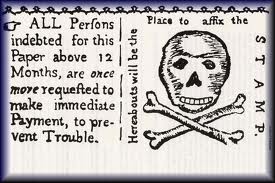
British troops were to be paid with taxes collected from the colonies:
the Sugar Tax of 1764,
the Stamp Tax of 1765 and
the Townshend Acts of 1767, taxing glass, paint and paper.
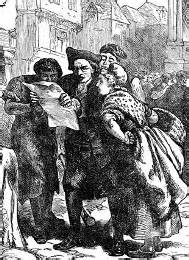
As the Colonies had no representative in Parliament, the cry arose, “No taxation without representation.”

The King imposed Writs of Assistance in 1765 allowing British authorities to arrest anybody, anytime, anywhere on any suspicion, and detain them indefinitely.
The government could even open and read the personal correspondence of citizens.
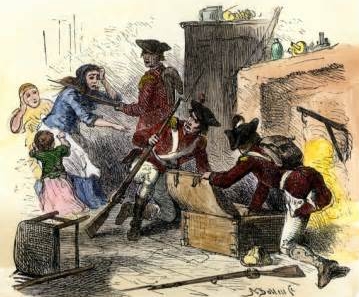 Citizens could have their houses, property and farms taken without a warrant or due process.
Citizens could have their houses, property and farms taken without a warrant or due process.
As there were no barracks, British troops forcibly entered into colonists’ homes and lodged or “quartered” in them, leaving families to live in barns, basements or attics.
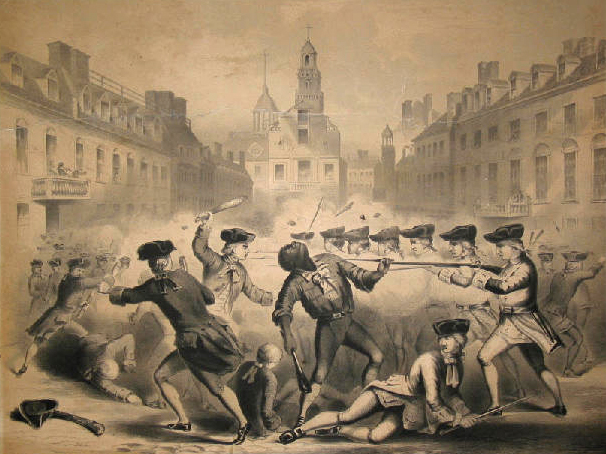
On March 5, 1770, a mob formed in Boston to protest.
In the confusion, British troops fired into the crowd, killing five, one of which was the African American patriot, Crispus Attucks.
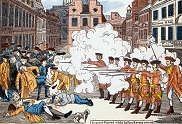
This became known as the Boston Massacre.
Paul Revere’s popular engraving of the Boston Massacre fanned flames of anti-British sentiment.
On the 2nd anniversary of the Boston Massacre, 1772, the President of Massachusetts’ Colonial Congress, Joseph Warren, who would later send Paul Revere on his midnight ride, stated:

“If you perform your part, you must have the strongest confidence that the same Almighty Being who protected your pious and venerable forefathers … will still be mindful of you …
May our land be a land of liberty … until the last shock of time shall bury the empires of the world in one common undistinguishable ruin!”
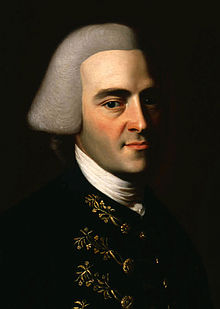
America was like ancient Israel in that every man was in the militia, armed, and ready at a moment’s notice to defend his community.
On the 4th anniversary of the Boston Massacre, 1774, John Hancock, who would be the first to sign the Declaration of Independence, stated:
“Will not a well-disciplined militia afford you ample security against foreign foes?
We want not courage; it is discipline alone in which we are exceeded by the most formidable troops that ever trod the earth …
A well-disciplined militia is a safe, an honorable guard to a community like this, whose inhabitants are by nature brave, and are laudably tenacious of that freedom in which they were born.
From a well-regulated militia we have nothing to fear; their interest is the same with that of the State.
When a country is invaded, the militia are ready to appear in its defense; they march into the field with that fortitude which a consciousness of the justice of their cause inspires …
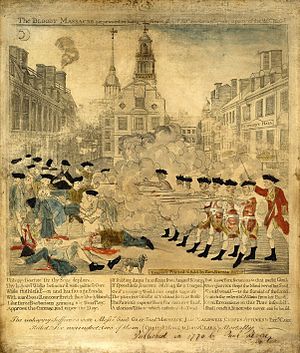
… They do not jeopard their lives for a master who considers them only as the instruments of his ambition, and whom they regard only as the daily dispenser of the scanty pittance of bread and water.
No; they fight for their houses, their lands, for their wives, their children; for all who claim the tenderest names, and are held dearest in their hearts; they fight pro aris et focis (Latin: “for our altars and our hearths” or “for God and country”), for their liberty, and for themselves, and for their God …
We have all one common cause…the security of the liberties of America.
And may the same kind Providence which has watched over this country from her infant state still enable us to defeat our enemies! …”
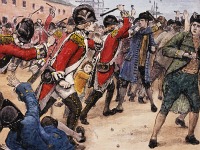
John Hancock added:
“I cannot here forbear noticing the signal manner in which the designs of those who wish not well to us have been discovered.
The dark deeds of a treacherous cabal have been brought to public view.
You now know the serpents who, whilst cherished in your bosoms, were darting the envenomed stings into the vitals of the constitution.
But the representatives of the people have fixed a mark on these ungrateful monsters, which, though it may not make them so secure as Cain of old, yet renders them, at least, as infamous …
Surely you never will tamely suffer this country to be a den of thieves. Remember, my friends, from whom you sprang …
Not only that ye pray, but that ye act; that, if necessary, ye fight, and even die, for the prosperity of our Jerusalem.
Break in sunder, with noble disdain, the bonds with which the Philistines have bound you.
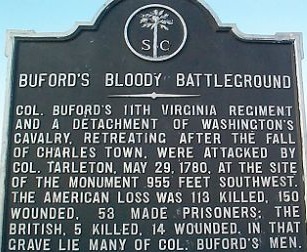
Suffer not yourselves to be betrayed, by the soft arts of luxury and effeminacy, into the pit digged for your destruction …
I thank God that America abounds in men who are superior to all temptation, whom nothing can divert from a steady pursuit of the interest of their country, who are at once its ornament and safeguard …
Let us catch the divine enthusiasm; and feel, each for himself, the godlike pleasure…of delivering the oppressed from the iron grasp of tyranny; of changing the hoarse complaints and bitter moans of wretched slaves into those cheerful songs, which freedom and contentment must inspire.
There is a heartfelt satisfaction in reflecting on our exertions for the public weal (good), which all the sufferings an enraged tyrant can inflict will never take away; which the ingratitude and reproaches of those whom we have saved from ruin cannot rob us of.
The virtuous asserter of the rights of mankind merits a reward … I have the most animating confidence that the present noble struggle for liberty will terminate gloriously for America …”

John Hancock concluded:
“And let us play the man for our God, and for the cities of our God; while we are using the means in our power, let us humbly commit our righteous cause to the great Lord of the Universe, who loveth righteousness and hateth iniquity.
And having secured the approbation of our hearts, by a faithful and unwearied discharge of our duty to our country, let us joyfully leave our concerns in the hands of him who raiseth up and pulleth down the empires and kingdoms of the world as he pleases; and with cheerful submission to his sovereign will, devoutly say:
‘Although the fig tree shall not blossom, neither shall fruit be in the vines; the labor of the olive shall fail, and the field shall yield no meat; the flock shall be cut off from the fold, and there shall be no herd in the stalls; yet we will rejoice in the Lord, we will joy in the God of our salvation.'”
Permission granted to forward, reprint or duplicate with acknowledgement to www.AmericanMinute.com
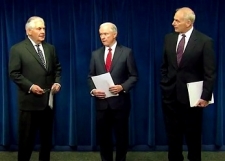

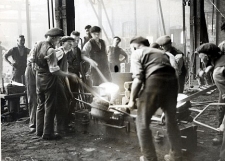
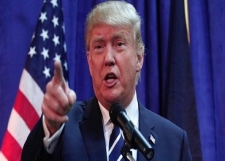
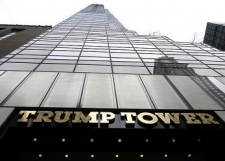


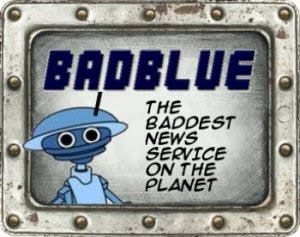
Facebook Comments